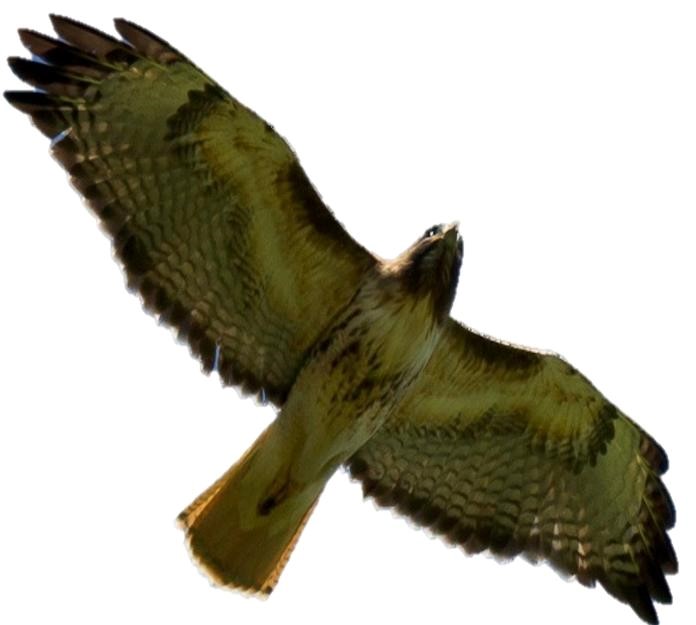
The Hunters of Our Skies
| The legends and heritage of Northwest Coast tribes include many tales of raptors, portraying them in dance, ceremonial garments, and in totemic art.
Europeans migrating to North America from all over the world, in the early years of colonization, also adopted the images of raptors as national and military symbols, including the American bald eagle. Of the approximately 10,000 species of birds in the world, 500 species are raptors. Of the 1,000 bird species in North America, we have some 30 species of raptors. And, if we’d consider the total numbers of birds in worldwide species, raptors as individual birds comprise only one percent of all birds. So why are we interested in gaining a better understand this small fraction of bird species and individuals? Their large body size and outstretched wingspan makes them easy to see. We watch, fascinated, as they catch and ride thermals high above us, soar without a wingbeat on wind currents, and hover over prey. Some species, like peregrine falcons, are notorious for their streamlined dives. Eagles, hawks, and falcons comprise the diurnal, or daylight, group of raptors. Owls work the night shift. Raptors can be year-round residents as well as migrants. Some have a specific prey base. Others will opportunistically eat an array of protein including mammals, fish, insects, reptiles, and carrion. These birds have keen eyesight, strong feet with large talons, sharp hooked beaks, and sturdy, versatile wings, making them extremely efficient hunters. Usually seen solitary or in pairs, many are keystone species, meaning that they influence the lives of many other species in their ecosystem. A healthy and active population of raptors indicates a balanced environment. Please join Audubon member Ken Wiersema for a free, hour-long meeting on Zoom, August 25 at 4 p.m., for an exploration of the raptors that share with us the daylight hours on the Olympic Peninsula. Virtual Learning: Raptors |

